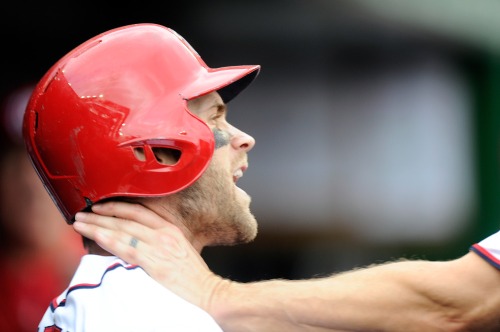Bad, BAD week last week, and not just for me. It was a bad week in ethics, and because of my own shortcomings, I wasn’t able to properly provide a path through it. This week will be better, starting today. At least if I have anything to say about it…
1. From “the rest of the story” files: Remember when Jonathan Papelbon attacked Bryce Harper in the Washington Nationals dugout? It was 2015, and pretty much marked the end of relief ace Paplebon’s career. Harper went on to become a mega-million dollar free agent after the 2018 season, when he signed with the Phillies for a ridiculous 30 million dollars a year long-term contract. Papelbon finally resurfaced in Boston this season as an amusingly unrestrained analyst for NESN, which broadcasts the the Red Sox games. And I recently discovered how almost right he was to accost Harper, if admittedly a bit too enthusiastically. The prompt for Pap to go grab Harper by the neck was the latter loafing down the line as he barely ran out a ground ball. Harper’s periodic lack of hustle had been a source of annoyance for years (to be fair, he was “only” being paid 2.5 million bucks to play hard in 2015), but I just saw the stats for his last year in Washington. Having been a plus-defensive player in previous years, Harper stopped hustling entirely in 2018, both in the field and on the bases. Though he had once saved over 20 runs in a season in the field alone, in his free agent year Harper cost his team over 20 runs that year, making sure he stayed healthy for the big payday to come (to be fair, he was “only” being paid 21.6 million bucks to play hard in 2018). As soon as he had a guaranteed contract with Philadelphia, Harper started playing hard again, dashing around the bases and diving in the outfield.
Both Papelbon and Harper were jerks during their careers, but nobody could accuse “Pap” of not doing his best to win for the fans, his team, its city and his team mates every single time he stepped onto a baseball field.
2. Not Harvard this time: it’s back to Georgetown! Both of my schools’ diplomas are turned to the wall of my office in a symbolic protest against their continuing unethical policies and conduct—-I’m not sure what more I can do to signal my contempt and embarrassment. Now it’s Georgetown’s turn again—I worked for the University for five years after I graduated from the Law Center—to make me wish I had graduated from a school with some integrity. Though it has been notably un-covered by the mainstream news media, Georgetown Professor Michele Swers read the words of a Ku Klux Klan leader in her “U.S. Political Systems” class for the college, but because she “did not censor” the word “nigger,” a large contingent of her students sent a smoking gun letter letter to Swers and the college’s diversity office, demanding that she apologize profusely, review all future presentation and lecture material for potential bias; and demonstrate her “understanding of the history of the N-word and why it is inappropriate for a non-Black person to say it in any context, including an educational context.” [Pointer: Steve Witherspoon]
So far, I can find no record of a response from the university or the professor, but writing of the incident, Prof. Turley says in part,






